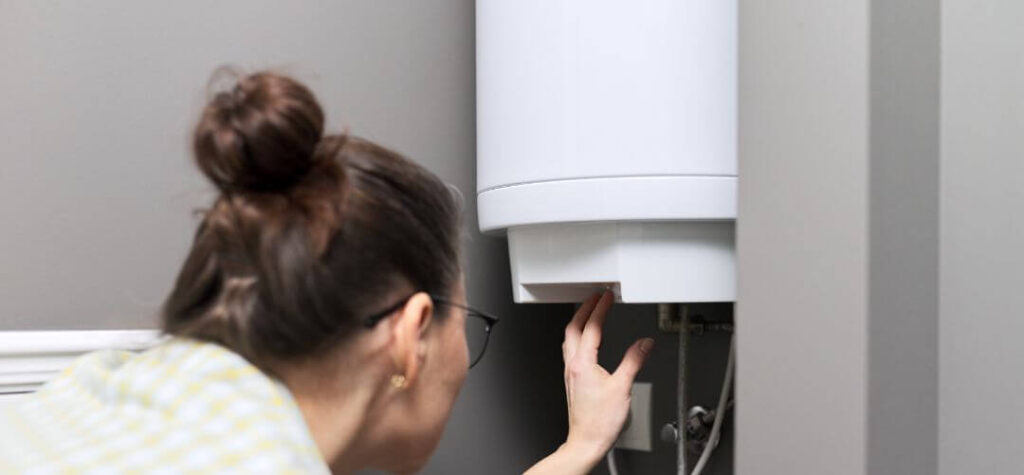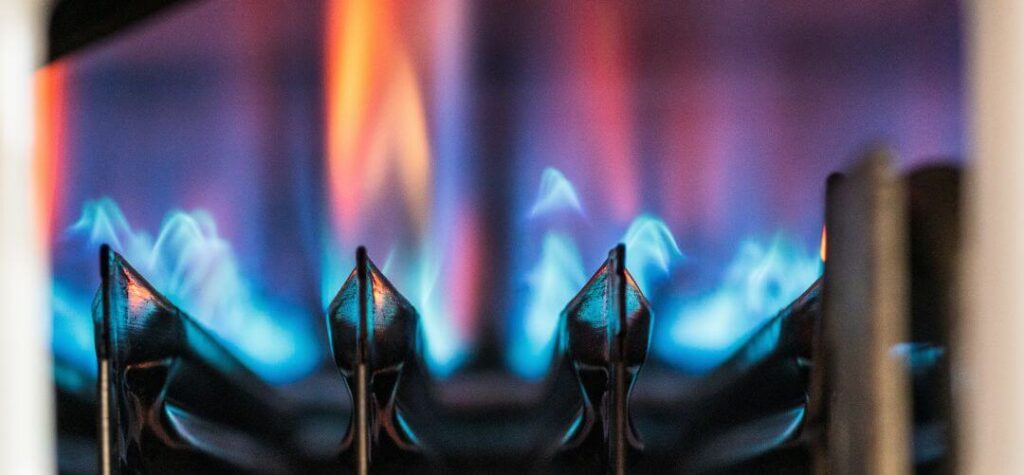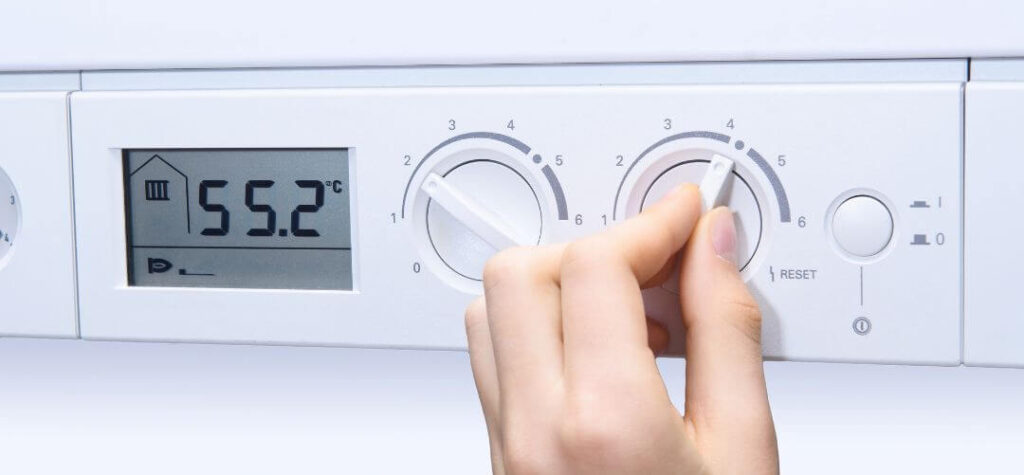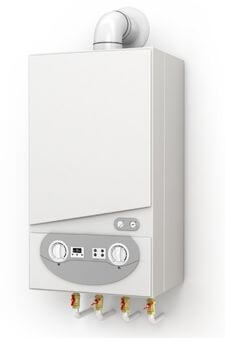Can You Leave Your Boiler On All Day? Is It Cheaper To Leave Hot Water On All The Time?
The simple answer to this question is no, you cannot have your boiler on continuously as it will overheat and become a fire hazard. However, there are some ways to keep your hot water on all the time without having to worry about your boiler overloading.
One way to do this is to invest in a storage tank that will heat water and then keep it at a consistent temperature. This way, you will have hot water available whenever you need it without worrying about your boiler working overtime.
Another option is to purchase a tankless water heater. These work by heating water as it passes through the unit, meaning you will never run out of hot water.
They are also much more energy efficient than traditional storage tanks so you can save money on your energy bills in the long run.
Keeping Your Energy Costs Low

There are a lot of different ways to keep your energy costs low. One way is to make sure that you don’t waste any energy.
That means keeping your home well insulated and using energy-efficient appliances. Another way to save money on your energy bill is to use less energy overall.
The efficiency of your boiler greatly impacts how much energy it takes to heat your home. If your boiler is more than 15 years old, it’s probably only about 60% efficient. That means for every £1 you spend on heating your home, 40p goes to waste.
A new, high-efficiency boiler can be up to 90% efficient. That means you’ll save £340 a year on your energy bills if you replace an old G-rated boiler with a new A-rated one.
One of the easiest ways to save energy and money is to turn down your thermostat simply. For every 1 degree you lower your heating, you’ll save about £60 a year on your energy bill.
So if you’re comfortable turning your thermostat down from 21 to 20 degrees, you’ll save £120 a year.
Maximizing Your Boiler’s Efficiency
Heating your home with a boiler can be an efficient and cost-effective way to keep warm during the colder months. But, like all heating systems, boilers can become less efficient over time. Here are some tips on how to maximize your boiler’s efficiency and keep your energy bills low.
1. Get your boiler serviced regularly
Servicing your boiler regularly is one of the best ways to keep it running efficiently. During a service, a qualified engineer will check for potential problems and make necessary repairs or adjustments. They’ll also clean the boiler and its components, which can help to improve its efficiency.
2. Insulate your boiler
Losing heat from your boiler can make it less efficient and increase your energy bills. You can help to prevent this by insulating your boiler. It is a relatively simple and inexpensive task that you can do yourself. Always use the correct materials and follow any safety instructions carefully.
3. Upgrade to a more efficient boiler
If your boiler is more than 15 years old, it will likely be less efficient than newer models. Upgrading to a more efficient boiler could save you money on your energy bills and reduce your carbon footprint.
4. Install a thermostat
Installing a thermostat can help you better control the temperature in your home, which can, in turn, help to improve your boiler’s efficiency. You can use less energy and save money by only heating your home when you need to.
Do you even need to worry?

If you’ve just moved into a new home or have never looked at your heating system, you could be unsure whether or not to turn on the hot water. Most houses in the UK have a combi boiler or a system boiler.
A combi boiler provides hot water on demand and does not need a hot water cylinder, so you do not need to worry about turning it on or off.
A system boiler heats water in a hot water cylinder and then pumps it around the house to the radiators. It does not provide hot water on demand like a combi boiler, so you will need to turn it on when you need hot water and off again when you don’t.
The cost of gas or electricity is the main factor in deciding whether it is cheaper to leave your boiler on all the time or turn it off when you don’t need hot water.
If you have a gas boiler, it is cheaper to leave it on all the time, as you only pay for the gas you use. It is cheaper to turn it off with an electric boiler when you don’t need hot water, as you are paying for the electricity even when the boiler is not in use.
Related: How The 100 Envelope Challenge Could Help You Save £5000+ In 2023
Constant or timed?
The debate of whether it is cheaper to leave the boiler on all the time, or put it on a timer, has been going on for some time.
Energy prices are always increasing, so it is more important than ever to ensure we are as energy efficient as possible in our homes. There is a split opinion on this matter, and I wanted to investigate further.
The case for having your boiler on constantly.
If your boiler is set to come on automatically at certain times of the day, it will take a while for the water to heat up. That’s because the boiler has been turned off for a while, and the water in the system will have cooled.
With the boiler turned on all day, the water will stay at a consistent temperature. So, when you need to use it, the hot water will be available immediately. Some people also believe that constantly having your boiler on is cheaper than turning it on when needed.
The case for having your boiler on only when needed.
Other people say it’s more economical to turn your boiler on and off as required. They argue that if the boiler is turned on all day, you’re paying to heat water that you may not even use.
So, what’s the verdict?
It’s hard to give a definitive answer because it depends on individual circumstances. If you have a large family and everyone is often using hot water at different times of the day, it may be cheaper to keep the boiler on constantly.
However, if you live alone and only use hot water occasionally, it could work out cheaper to turn the boiler on and off as required.
Big Phil says to leave the hot water on constant.

The engineer “Phil” – said that it is more economical to leave the hot water on all day rather than heat it for short periods. The reason is that once the boiler has heated the water to temperature – it only costs a few pence per hour to keep it warm.
If you turn it off and then on again – the boiler has to work harder to reheat the water from scratch. But what about the environment? Surely all that hot water must use more energy and create more carbon emissions?
Yes, there is an environmental cost – but it is small. If everyone in the UK followed Phil’s advice, we would use an extra 0.5% of the nation’s gas supply. The emissions from this would be about 1 million tonnes of carbon dioxide – less than 1% of the UK’s total emissions.
Is The Insulation In Your Home Well-fixed?
You might be surprised that your home could be losing a lot of heat and costing you money. As much as 35% of heat is lost through walls, 25% through the roof, and 15% through doors and windows, according to the Department for Business, Energy & Industrial Strategy (BEIS).
There are several things you can do to insulate your home and make it more energy-efficient, such as:
- Adding insulation to your loft, walls, and floors
- It-Fitting double glazing
- Draught-proofing doors and windows
- Cavity wall insulation
- Heating controls
Insulating your home could save you up to £140 a year on your energy bills, according to BEIS. So, what does this have to do with whether you should leave your boiler on continuously?
If your home is well insulated, you won’t need to leave your boiler on to keep it warm constantly. You could save money by turning your boiler off when you don’t need it.
On the other hand, if your home is poorly insulated, it’s cheaper to leave your boiler on continuously. This is because it will take less energy to keep your home warm.
The experiment – Boiler Run

Let’s talk about an experiment conducted to see how much money could be saved by leaving the hot water on all day.
The experiment was conducted over two weeks. The hot water was turned on and off the first week as normal. In the second week, the hot water was left on all day.
The results showed no significant difference in the amount of money spent on energy bills between the two weeks. It suggests that it doesn’t make a huge difference whether you leave your hot water on all day.
Of course, this is just one experiment, and your results may differ. It’s important to consider your circumstances to see if it would be cheaper for you to leave your hot water on all the time.
How much does it cost to leave the hot water on constantly?
It really depends on your boiler and how much hot water you use. If you have an older, inefficient boiler, it might be cheaper to always leave the hot water on.
However, if you have a newer, more efficient boiler, it might be cheaper to turn the hot water off when you’re not using it. It’s also worth considering how much hot water you use.
If you have a family of four who all take showers every day, you’ll use a lot more hot water than if you live alone and only take a shower once a day. So, if you have a high hot water usage, it might be cheaper always to leave the hot water on.
It’s up to you to decide whether it’s cheaper to constantly leave the hot water on or turn it off when you’re not using it. If you need more clarification, you can always ask your gas company or boiler manufacturer for advice.
Is it cheaper to leave the hot water on all the time?

This is a common question, but unfortunately, there is no easy answer. The amount of money you could save by leaving your boiler on continuously depends on many factors, such as the type of boiler you have, the size of your home, and how much hot water you use each day.
If you have an older, less efficient boiler, leaving it on all the time will likely cost you more energy bills than turning it off and on as needed. However, the opposite may be true if you have a newer, more efficient boiler.
The best way to determine whether or not it is cheaper for you to leave your boiler on continuously is to contact a heating professional for an assessment. They can look at your home and your boiler type and help you make the best decision for your situation.
We recommend turning your boiler off when you are away from home for extended periods, such as when you go on vacation.
Why do some people turn off their boilers at night?
Is it to save money? Let’s investigate whether it is cheaper to keep your boiler on all the time or turn it off when you go to bed. The cost of running a boiler depends on a few things.
The biggest factor is how much hot water you use. If you have a family of five, you’ll use a lot more hot water than if you live alone.
The next thing that affects cost is the price of gas. If gas prices have gone up, your bill will be higher. Finally, the efficiency of your boiler plays a role. A newer, more efficient boiler will cost less than an older one.
So, It depends on how much hot water you use and the gas price. If you use a lot of hot water, it will cost more to leave your boiler on all the time. If gas prices are high, it will also cost more.
The downside of turning it off overnight

The first is that it can take a long time for the water to heat up again in the morning, which wastes energy and time.
The second is that if you do this regularly, your boiler will work overtime to heat the water, which will shorten its lifespan.
On the other hand, leaving your boiler on continuously is more expensive, as it’s constantly using energy to heat the water.
Using Your Thermostat and Timer
If a time clock turns your boiler off and on, you can save money by turning it off when you don’t need hot water. For example, if you’re out at work all day, there’s no need to run the boiler when no one is using hot water.
You could also look at getting a new time clock which is more accurate than your current one. It could make sure your boiler only comes on when necessary, saving you money.
If you have a room thermostat, you should set it to the right temperature. For example, if you have it set too high, your boiler will work harder than it needs to. You could also get a more efficient boiler. This could save you money in the long run and help the environment.
Have you got an immersion heater?
If you’ve got an immersion heater, it might be cheaper to leave your boiler on all the time. Immersion heaters only heat the water in the tank, so if you’re constantly using hot water, your tank will never have a chance to cool down, and you’ll be wasting energy heating up water you’re not using.
If you don’t have an immersion heater, it’s still cheaper to leave your boiler on all the time rather than turning it on and off as you need hot water.
It is because boilers take a while to heat up, so if you’re constantly turning them on and off, you’ll be wasting a lot of energy waiting for the water to heat up each time.
Don’t Believe Common Energy Myths

We’ve all heard the energy-saving tips and tricks passed down through the generations. But how many of these ‘tips’ are true? Let’s take a look at some of the most common energy myths and see if there is any truth to them:
Leaving the heating on all day is more expensive than turning it on and off. This may have been true years ago, but with modern boilers, it’s more efficient to leave the heating on all day at a low temperature than to keep turning it on and off.
By leaving your heating on all day, you use ‘storage heat.’ It means that your boiler will heat your home to the temperature you set and then maintain that temperature, using less energy than if you were to turn it off and on throughout the day.
FAQs | Can I Have My Boiler On All The Time?
Here are some frequently asked questions that may help you decide whether to leave your boiler on continuously or not:
Can I have my boiler on continuously?
It depends. If you use a lot of hot water, it will cost more to leave your boiler on all the time. If gas prices are high, it will also cost more. However, if you have an immersion heater, it might be cheaper to leave your boiler on all the time.
What are the downsides of turning my boiler off overnight?
The first is that it can take a long time for the water to heat up again in the morning, which wastes energy and time. The second is that if you do this regularly, your boiler will work overtime to heat the water, which will shorten its lifespan.
Can I Have My Boiler On Continuously – Final Thoughts
It is not recommended to have your boiler on continuously as it can lead to increased energy costs and can also cause damage to the boiler over time.
It is also not cheaper to leave the hot water on all the time, as it can lead to wasted energy and increased costs.
It is best to only heat your water and boiler when needed and to use energy-efficient settings and techniques to minimize costs.
Additionally, it is important to regularly maintain your boiler to ensure it is running efficiently and preventing any potential breakdowns. Overall it’s better to turn off the boiler when not in use.













